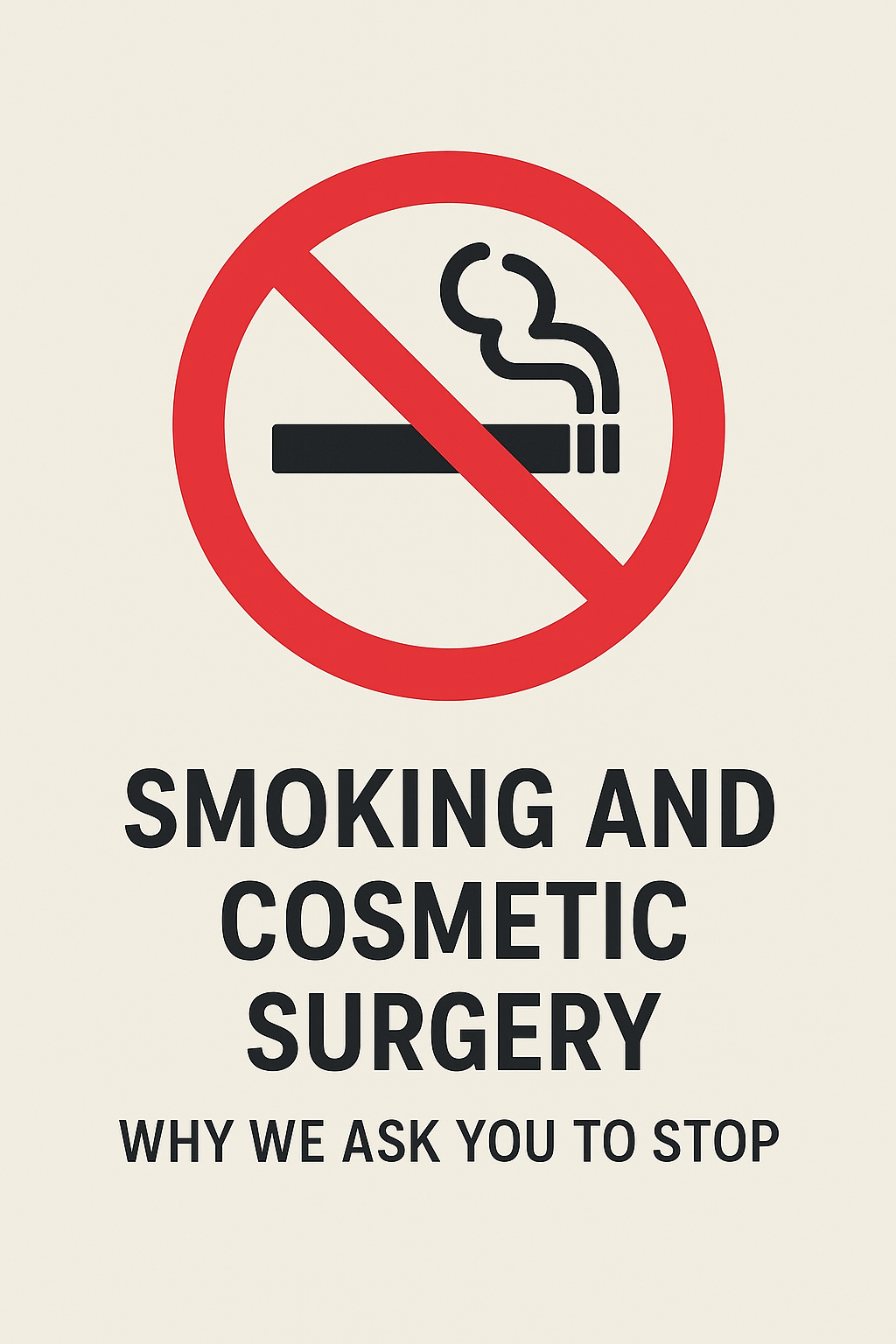Why smoking is a problem for surgery?
Cigarette smoke contains thousands of chemicals. Two in particular cause trouble around surgery:
- Nicotine narrows blood vessels and reduces the blood supply your tissues need to heal.
- Carbon monoxide lowers the oxygen your blood can carry.
Together they increase surgical risks and slow recovery. UK peri-operative guidance notes that stopping smoking roughly halves the risk of post-operative complications.
Specific risks for aesthetic plastic surgery
If you smoke (or vape nicotine) before/after an operation, your risks are higher for:
- Wound-healing problems & delayed healing (reduced blood flow/oxygen).
- Infection (impaired immune responses in the wound).
- Skin/soft-tissue necrosis (particularly with skin flaps in facelifts, breast procedures, tummy tucks).
- Bleeding/haematoma and seroma formation.
- Bronchospasm, cough and lung infections (airway irritation increases anaesthesia and breathing problems).
- Anaesthetic challenges (smokers often need higher doses and have more airway reactivity).
Plastic-surgery literature specifically links smoking with higher rates of surgical-site infection, delayed healing, and skin/flap loss after common aesthetic procedures.
What about vaping and nicotine replacement?
- Vaping: Although generally less harmful than smoking, high-nicotine vapes may still impair healing—especially for flap-based or reconstructive surgery. We advise treating vaping like smoking around the time of surgery.
- Nicotine-replacement therapy (NRT): UK peri-operative guidance emphasises that most surgical risk comes from tobacco smoke, not nicotine itself. NRT can be used to help you quit and is preferable to continued smoking; discuss the plan with your surgical team.
When should I stop smoking?
While “the earlier the better” always applies, UK sources give practical timeframes:
- Ideal: 8 weeks smoke-free before surgery (and continue afterwards). Several NHS hospitals and regional policies highlight optimal benefit at ~8 weeks.
- Minimum target: 4–6 weeks before surgery improves wound and lung outcomes and shortens hospital stay.
- Any amount helps: Even stopping in the days before surgery is better than not stopping at all—but you should not smoke on the day of surgery.
How quickly do benefits start after stopping?
Benefits begin within hours (improved oxygen-carrying capacity), and increase over the first 2–8 weeks as circulation and lung function improve and coughing reduces.
Practical help (NHS)
- Ask your GP or pharmacist for a Stop Smoking Service referral, local counselling, and NRT options.
- NHS hospital leaflets also provide step-by-step support and apps (e.g., “Smokefree”).
Key take-home points for patients
- Smoking (and high-nicotine vaping) significantly raises the risk of wound problems, infection, bleeding, haematoma/seroma, lung issues and skin/tissue loss after cosmetic surgery.
Contact MACS Clinic
- Phone: 020 7078 4378
- WhatsApp: 07792 648 726
- Email: enquiries@macsclinic.co.uk
- Website: macsclinic.co.uk
BOOK a FREE Video Consultation: https://calendly.com/macsclinic/free-video-consultation?month=2025-01







